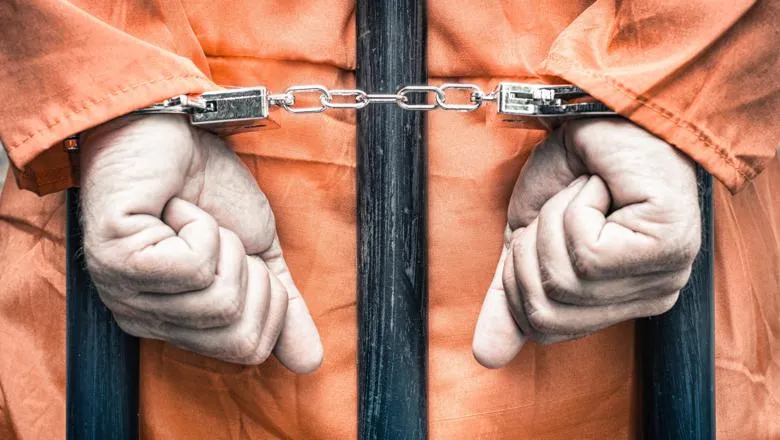On 3 November, US lawyers filed a submission on behalf of King's Legal Clinic, drafted by experts from The Dickson Poon School of Law and based on research undertaken by Clinic students, to an American appellate court. Their submission contests the legality of the use of evidence obtained through torture in a case involving a detainee at Guantanamo Bay.

On May 18, 2021, a military judge ruled in U.S. v. Al-Nashiri that statements purportedly obtained through torture cannot be admitted into evidence at trial, but that the military judge could consider such statements in pre-trial proceedings or what are described as 'interlocutory motions' – when a trial is paused to consider a question of law with relevance to the case.
The military judge's ruling was the first time that prosecutors in Guantanamo Bay are known to have been allowed to use information derived from torture in proceedings.

The case received international attention. The judge's decision, many argued, not only risks Abd al-Rahim al-Nashiri's right to a fair trial, but carries profound implications for other Guantanamo detainees, and for prisoners subject to torture worldwide.
With an appeal pending in the Al-Nashiri case, Professor Philippa Webb, Professor of Public International Law, and co-author with Amal Clooney of The Right to a Fair Trial in International Law, agreed to provide legal analysis to support the argument that the decision to permit use of this evidence violated international law.
The Right to a Fair Trial in International Law examines the prohibition of torture evidence in the specific context of the right to silence. The submission in this case, however, required a broader survey of international law, a huge task.
Professor Webb turned to King's Legal Clinic. In less than three weeks, a team comprising ten students and alumna Lucia Saborio Perez, working under the supervision of Clinic Assistant Director Sue Willman, collated relevant material from all principal sources of international human rights law.
Saras Sawhney, a fourth year Politics, Philosophy and Law student involved in the project, said: "Our efforts aimed at documenting and categorising various primary and secondary sources which supported the argument developed in our submission; namely, that under international law, evidence obtained under torture is inadmissible under any circumstances. I researched the decisions of the UN Human Rights Committee and the Committee Against Torture."
Laura Bertagnoli, a fourth year English Law and German Law student, said: "One of the main tasks included research on the standard applied by international, regional, and domestic human rights bodies, such as the European Court of Human Rights or the Inter-American Court of Human Rights. Moreover, I analysed and distinguished a recent International Criminal Court case (Al Hassan) where the defendant's counsel alleged that the Court had admitted into evidence statements that were obtained by torture."
The team worked in English, Spanish and French, additionally looking at international and regional treaties and judgments; decisions of the UN Working Group on Arbitrary Detention; and statements of the UN Special Rapporteur on Torture. They also researched the case law of international criminal courts and leading domestic courts.
Professor Webb and her colleague Dr Rosana Garciandia, Lecturer in Public International Law, then drafted a 'friend of the court' submission, or amicus curiae.
Sue Willman, Assistant Director and Supervising Solicitor at King's Legal Clinic: "An amicus curiae is a legal brief designed to explain the law impartially to a court.
"In this case, we were fortunate to draw on the Law School's expertise in international law. Using the research produced by Legal Clinic students, Professor Webb and Dr Garciandia have drafted a compelling argument that the exclusion of torture is absolute in international law."
In the May judgment, the military judge did not consider U.S. obligations under international law, specifically the obligations under the Convention Against Torture and customary international law that prevent states from using evidence obtained by torture at any stage of the proceedings against an accused.
Dr Rosana Garciandia: "The military judge in the Al-Nashiri case, which is a death penalty case, allowed prosecutors to introduce in pre-trial proceedings information obtained from Mr Al-Nashiri by torture. Introducing this evidence in pre-trial proceedings means the judge would consider the information before a jury begins hearing a case.
"This decision clearly goes against international law because the prohibition of the use of evidence obtained by torture applies to any proceedings, including pre-trial or interlocutory motions. It not only renders the trial unfair but also leaves the door open to violations of the prohibition of torture and the right to a fair trial in future cases, perhaps even by other states that would justify their actions based on US practice."
Saras Sawhney: "To allow the admission of evidence gained under torture is to justify torture. Efforts to limit the admissibility of such evidence to 'context', as opposed to prohibiting it outright, run into an insuperable problem: what exactly counts as relevant context, and who gets to decide? If we open the metaphorical door to torture in this discretionary way, we run a grave risk, incentivising and legitimising an abhorrent violation of fundamental human rights."
Laura Bertagnoli: "Admitting evidence obtained by torture undermines the categorical prohibition on torture and as such constitutes a violation of international law. Moving away from a categorical prohibition to a discretionary decision of admitting evidence as 'context' is a small crack in the foundation of the core and non-derogable rights of international law, thereby slowly but surely weakening this foundation and – at some point – risking it collapsing. It could ultimately result in the legitimisation of that sort of reprehensible conduct international law categorically prohibits, and - in the words of the US Supreme Court in Rochin v. California – in "afford[ing] brutality the cloak of law".
The 26 page amicus curiae was filed in the U.S. Court of Appeals for the District of Columbia by the law firm Curtis, Mallet-Prevost, Colt & Mosle LLP, acting in a pro bono capacity for the Clinic. The submission has already received the support of two former United Nations Special Rapporteurs on Torture, Juan Méndez and Manfred Nowak.
Professor Philippa Webb: "The admission of statements obtained through torture in any proceedings violates rules at the core of international law. The global consensus is overwhelming. I am grateful for the dedication of my colleagues and students and the professionalism of the Curtis team in shining a light on this issue."
Juan Perla, appellate associate at Curtis, Mallet-Prevost, Colt & Mosle LLP, added: "We are honoured to assist King's College Legal Clinic and its associated professors and students in bringing their views to the attention of the D.C. Circuit, especially with respect to fundamental principles of international law such as the prohibition against using evidence obtained through torture."
Laura Bertagnoli: "It was an incredible honour to assist in the drafting of the amicus curiae and to work with Professor Philippa Webb, Dr. Rosana Garciandia, and Sue Willman as experts in this field. To me, this experience was an opportunity of acting for a meaningful cause and in some way contributing to the protection of core rights of international law. Thus, it was an invaluable, academically stimulating, and (morally) rewarding experience."
Saras Sawhney: "It is a real privilege to have been involved in the amicus project. The significance of what was at stake made the work incredibly rewarding, and challenged us to produce research of the highest standard. Furthermore, it was really special to work under the mentorship of Professor Webb, Dr. Garciandia and Sue Willman, who are experts in the field, and to work alongside very motivated, like-minded students!"
The students and alumna involved in the research for the amicus submission were (in alphabetical order): Stefanos Arvanitakis, Laura Bertagnoli, Pierre-Jean Clausse, Amanda Ignatia (Clinic student co-director), Lea Leonhardt, Perlina Patel, Andreea Marinela Popovici, Rusat Ramgopal, Lucia Saborio Perez, Saras Sawhney, and Isabelle Standen (Clinic student co-director).






